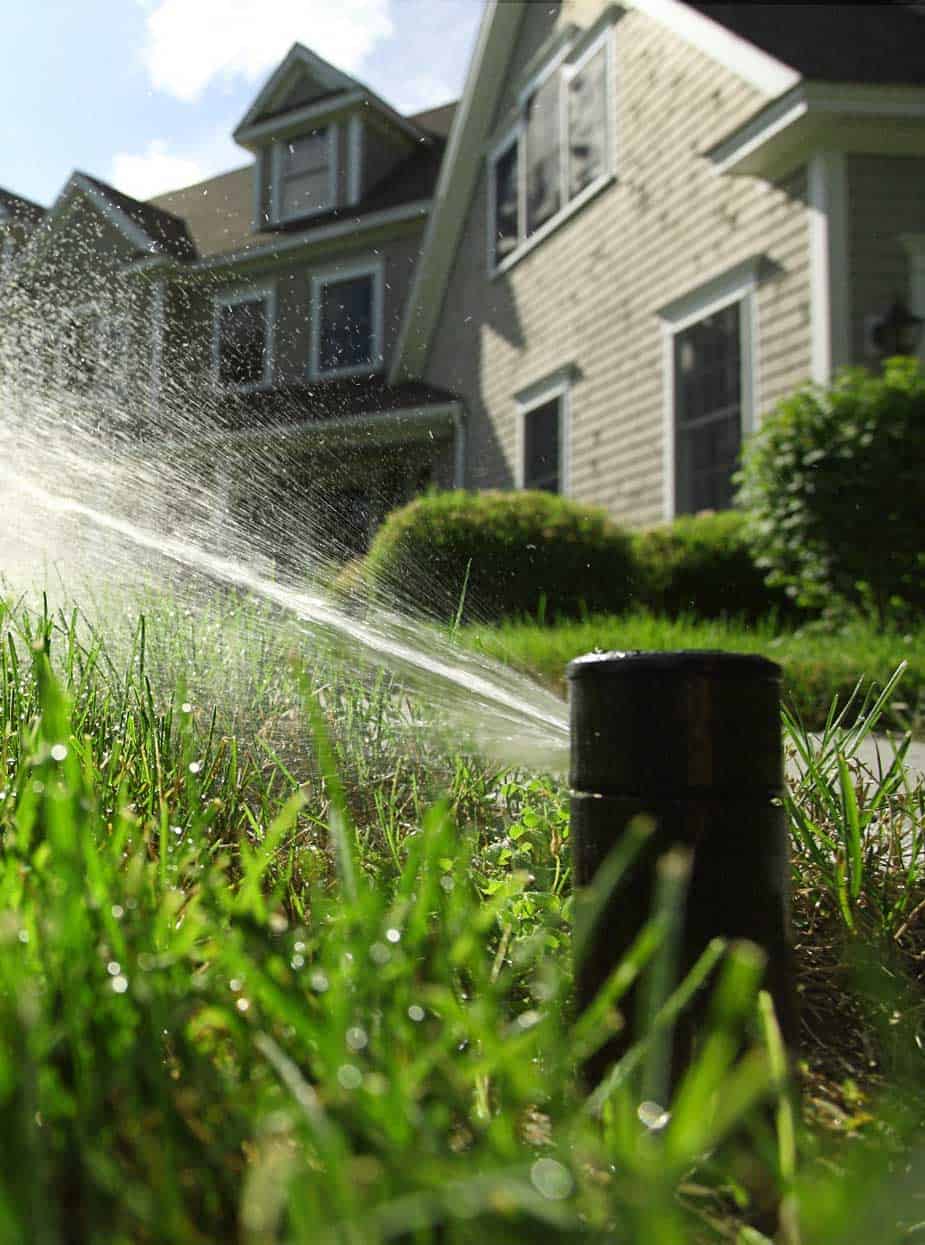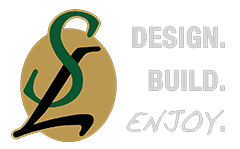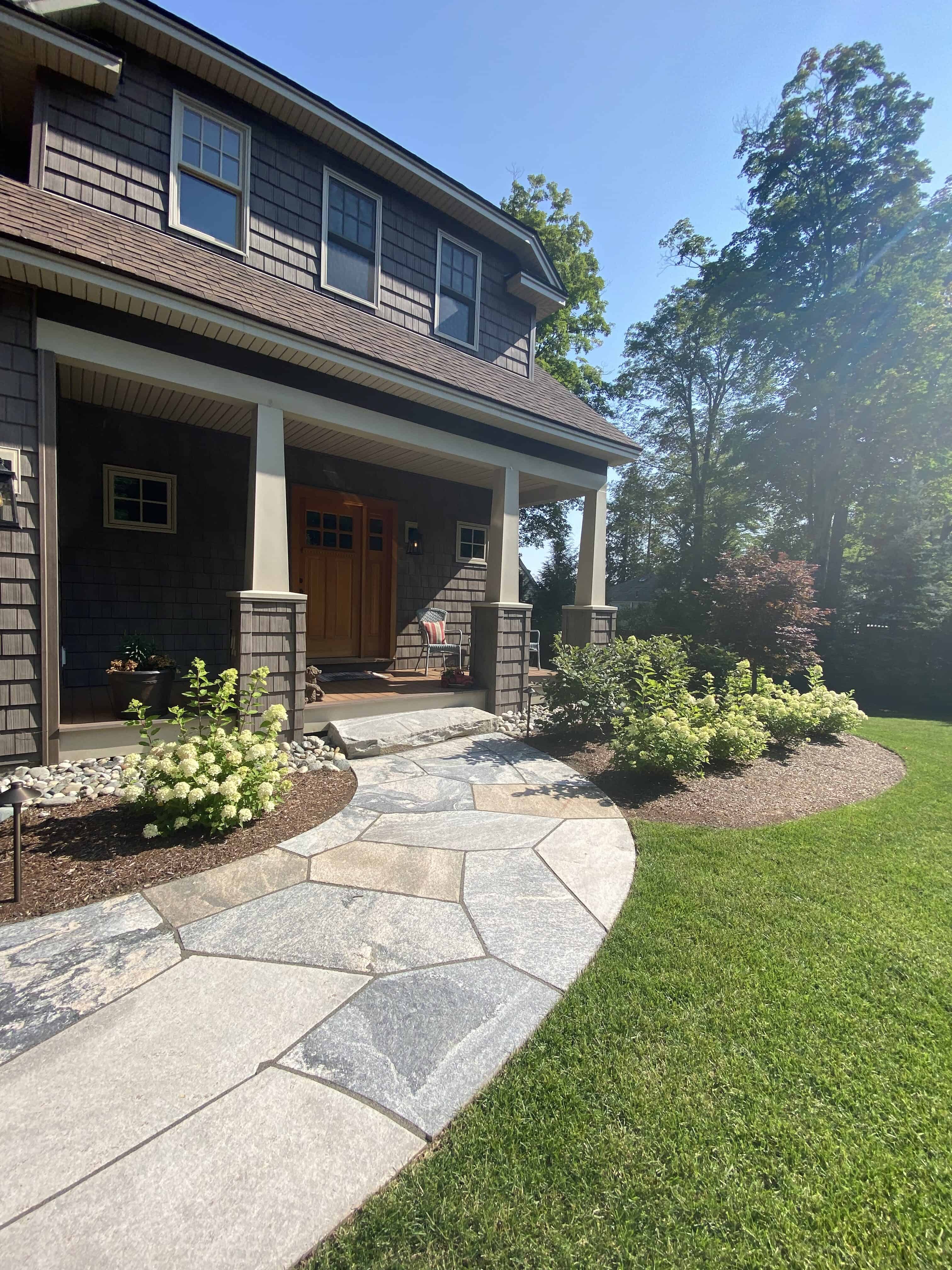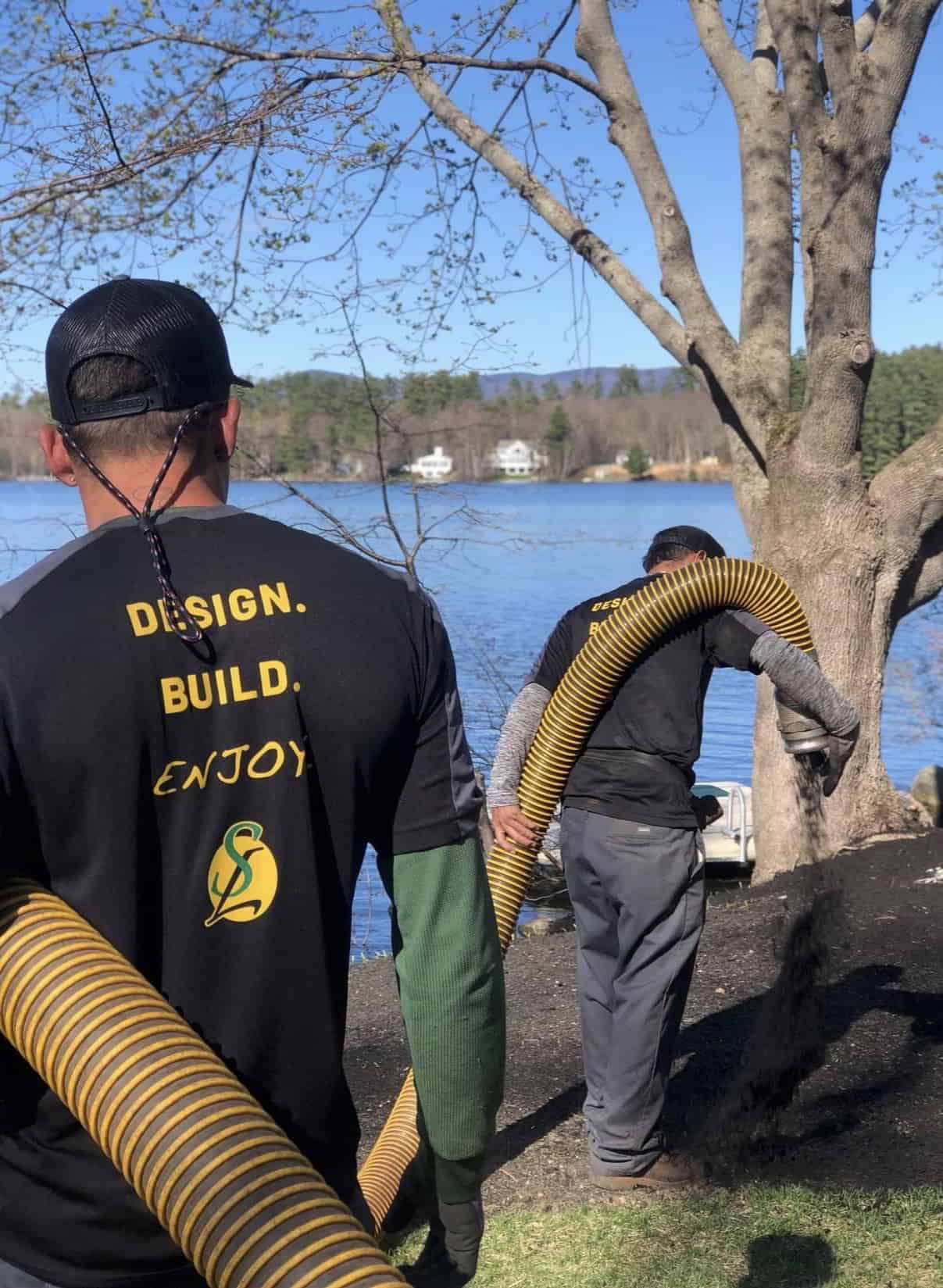We’re well into the hottest part of the summer now, and our lawns, plantings, and gardens are looking very lush and healthy. Unfortunately, August is when droughts usually occur in New Hampshire, so it can be a struggle to keep our lawns looking green and our gardens well-watered. But with a little care, a well-designed irrigation system, and a carefully thought-out watering schedule, your lawn, plantings, and garden will survive the heat of late summer and thrive even into the late fall months.
Water, Water Everywhere
There are a lot of things to consider when planning to install an irrigation system on your property, such as water pressure, water volume, positioning to prevent run off, etc., that’s best left to professionals, but in this blog, we’ll discuss some basics to help you make an informed choice when considering what’s right for you and your property.
There are two types of irrigation systems for landscapes, sprinkler irrigation and drip irrigation, and a well-designed irrigation system usually includes both kinds, as they serve different purposes. Both systems will have pipes buried under the lawn and garden to supply water to your lawn, garden, shrubbery, and trees.
Sprinkler irrigation systems are the watering systems we are most used to seeing in lawns and in gardens. They shoot out water to small or large areas of lawns or plantings. They pop up when needed, and retract when not in use, to be out of the way of lawn mowers and people, and to keep the property from looking unsightly.
- Rotary sprinklers are high pressure heads that pop up and rotate to cover a large area when in use. They are adjustable and can cover arcs between 20 and 360 degrees.
- Spray heads disperse a lower volume of water and are made to cover a smaller area of land. They spray water in a circle, but do not move. They work well if you want to water a specific area or planting.
Drip irrigation is used most often in vegetable gardens and amid plantings like shrubs, trees, and flower beds. This process involves soft hoses with have tiny holes, and water leeches out at a slow and steady pace. It’s a very efficient watering system, as it slowly feeds water directly to the roots of your plants, keeping moisture levels in the perfect range. As water is dripped below the soil’s surface, there is little chance for run off or evaporation, and the system is designed to run daily unless it rains.
 Setting Up a Schedule
Setting Up a Schedule
Here in NH, it’s recommended that watering is done between sunrise and 10 am, or 6pm and midnight, and watering is not needed if it has rained within the last 48 hours or if it’s scheduled to rain within the next 24 hours. By keeping to this schedule, no to minor adjustments should be needed if drought restrictions come into effect in your community.
Most lawns need to have about an inch of water or so a week, yours may need more or less depending on a variety of conditions. Call us at 603.707.0630 and we can work with you to help you come up with a good watering schedule based on what kind of grass and soil you have, and how long it takes your sprinkler to distribute an inch of water, so you can be sure your landscape is not over or under watered.
Controlling the Flow
While developing a schedule is crucial, life doesn’t always follow a plan, no matter how well that plan is thought out. Droughts happen, rainstorms happen, and schedules get pushed to the wayside. The best way to control any complication to your plan is to attach your irrigation system to a smart controller. A controller is as vital a part of your irrigation system as your sprinkler heads, so make sure to take the controller into consideration when choosing your system.
The controller should automatically adjust to weather conditions and cut down on any unnecessary water use. Be sure to choose a controller that connects to the Cloud, and that has an app so you can control and check up on your system by phone. And preferably one that has a forecast function, so it keeps itself aware of current weather conditions. A good controller is one that will control the different zones of your system differently, so your vegetable garden can be set up on a different schedule than your lawn and your shrubs, for example.
At Stephens Landscaping, keeping your property lush, green, and healthy is our goal. Our full-service irrigation division will manage your irrigation system from spring to fall. This service includes starting your system in the spring, water management throughout the changing seasons, and shutting your system down at the end of the fall. We also perform system repairs, system retrofits, and system upgrades to smart-watering technology. Call us at 603.707.0630 or reach out by email and we’ll be happy to chat with you about your ideas and specific needs.



 Dethatch and Aerate the Lawn
Dethatch and Aerate the Lawn Replace Old Mulch
Replace Old Mulch  Power Wash the Hardscapes
Power Wash the Hardscapes Cut Back Your Perennials
Cut Back Your Perennials